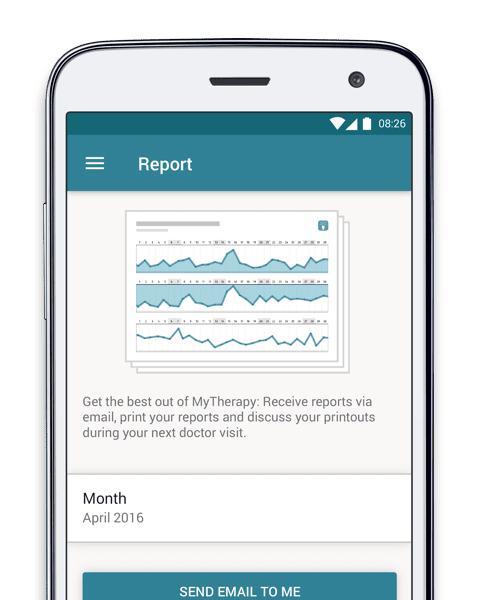There’s been a substantial buzz around marijuana in recent years, both for its medical and recreational applications. One of the most talked-about treatments is the use of CBD. CBD, or cannabidiol, is one of the chemicals found in cannabis, but it isn’t responsible for the effects most commonly associated with marijuana. Unlike THC, another cannabinoid, CBD doesn’t cause any sort of ‘high’ or impairment. Instead, CBD is associated with pain-relieving and stress-reducing effects. So far there has only been limited research, but initial findings have been promising. Read on to find out what we know so far about CBD and treating chronic pain.
How CBD Works:
CBD, and all other cannabinoids, work by interacting with the body's cannabinoid receptors. Within our endocannabinoid system, there are two distinct types of receptors, CB1 and CB2. CB1 receptors influence movement, pain, mood, appetite, and several other functions. CB2 receptors primarily affect inflammation and pain.
CBD works by stimulating these receptors, in turn prompting the body to produce cannabinoids of its own. For reference, THC works by attaching itself to the receptors, rather than prompting the body to create its cannabinoids. Due to the wide range of influence the endocannabinoid system has on our bodies, CBD can be linked to an equally wide range of possible effects.
The effects of CBD:
There are quite a few applications for CBD that we will discuss in the next section, and the effects will vary based on personal circumstances. The effects mentioned here are only the most common or well-documented and do not represent a complete list.
Positive Effects:
The positive effects of CBD that will interest most people are its pain-relieving and anxiety-reducing abilities. These are made possible through CBD’s interaction with CB1 and CB2 receptors, as mentioned in the last section. Through those same receptors, CBD may be able to reduce or eliminate symptoms from a wide range of conditions, some of which will be examined more closely in the next section.
Negative Effects:
Adverse side effects are not a common theme in CBD treatment, but they do occur. Some patients have reported an increase in anxiety, mood changes, and drowsiness after using CBD. There have also been reports of changes in appetite, nausea, and vomiting, though these side effects are rare.
Treating Chronic Conditions with CBD:
If you spend some time on the internet you’ll have no difficulty finding anecdotal evidence that CBD can cure everything from STDs to a hangover. Unfortunately, studies such as this one have indicated that while CBD has a lot of potential benefits, it is not a miracle drug. The following are conditions with some evidence that CBD could be an effective treatment.
Chronic Pain:
While there is no shortage of pain-relieving medications available now, CBD presents a more natural and less addictive alternative that some people may find appealing. Studies on animals, such as this one, have shown that CBD can halt the release of inflammation-causing compounds within the body. So far, CBD has been indicated as an effective pain-reducing treatment for various sources of chronic pain such as cancer, fibromyalgia, back injuries, and neuropathic pain.
Epilepsy:
Despite evidence suggesting CBD’s effectiveness for treating various conditions, epilepsy is the only condition it is currently approved by the FDA to treat. Epidiolex, a purified CBD oil is currently used to prevent seizures in people with Lennox-Gastaut syndrome and Dravet syndrome. You can read more about the FDA’s approval of Epidiolex here.
Alzheimer’s Disease:
There have only been a couple of studies conducted to look at the effect of CBD on Alzheimer’s. However, results have suggested that CBD may help patients to retain abilities such as facial recognition and slow the progression of the disease. More studies are being conducted now, and there is a belief among some that THC alongside CBD may provide a more effective treatment.
Cancer:
There have been some studies showing that CBD treatment may has multiple applications when it comes to cancer treatment. This study found that CBD can be effective at slowing the spread of certain types of cancer. It has also been suggested that CBD can help to reduce the negative effects of chemotherapy.
Diabetes:
Inflammation in the pancreas is a key component of type 1 diabetes. Researchers believe that CBD may be able to reduce or prevent this inflammation. In turn, this may be able to slow the onset of preventing type 1 diabetes.
Mental Health Disorders:
For a long time, doctors have recommended that patients with mental health disorders such as anxiety stay away from marijuana, and many would assume the same advice applies to CBD. However, the reason for this suggestion is the effect of THC on anxiety. CBD, on the other hand, has been shown to have positive effects on many mental health disorders. More research still needs to be done, but results so far are promising, and it’s likely we’ll see CBD become a more common treatment for mental health disorders.
The above information is not a recommendation and you should not attempt to self-medicate any conditions based on it. There is still a lot of research to be done on CBD and its effects and this article can only reflect what we know so far. If you do plan to take CBD for any reason you should speak with your doctor first.
Here are some other articles we think you might enjoy:
Mental Hygiene: Taking Care of More Than Your Physical Health



